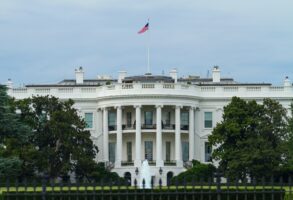
Published February 16, 2023
On January 5, 2023, the U.S. Department of Health and Human Services (HHS) issued a notice of proposed rulemaking (NPRM) titled “Safeguarding the Rights of Conscience as Protected by Federal Statutes.” The 11-page NPRM is open for public comment for 60 days until Monday, March 6.
In its press release announcing the NPRM, HHS explains that the “[p]roposed changes would increase access to care and prevent discrimination.”
Federal Healthcare Conscience Protection Laws
HHS is charged with enforcing over two dozen federal laws that protect conscience and religious freedom rights of individuals and organizations in healthcare. Most of these laws focus on the most controversial medical interventions of abortion, sterilization, and assisted suicide, and provide protections for those who do not want to participate in or pay for such interventions based on their conscience—whether religious beliefs or moral convictions.
These conscience protection laws include:
- The Church Amendments– Conscience protections for individuals and entities related to abortion, sterilization, and certain other health services.
- The Coats-Snowe Amendment– Conscience protections for health care entities related to abortion provision or training, referral for such abortion or training, or accreditation standards related to abortion.
- The Weldon Amendment– Protections from discrimination for health care entities that do not provide, pay for, provide coverage of, or refer for abortions.
- Affordable Care Act– Conscience protections for healthcare providers related to abortion and assisted suicide, euthanasia, or mercy killing.
- Medicare and Medicaid– Conscience protections for Medicare Advantage organizations and Medicaid managed care organizations with moral or religious objections to counseling or referral for certain services.
Because courts have held that certain conscience protection laws do not contain an implied private right of action, meaning that an individual or entity whose rights have been violated is unable to sue in federal court, it is incumbent on HHS to vindicate any violation of rights.
History of HHS Conscience Regulations
There have been three major iterations of HHS regulations on federal healthcare conscience protection laws: 2008 (Bush), 2011 (Obama), and most recently 2019 (Trump). The 2008 and 2011 regulations only applied to three laws—the Church Amendments, the Weldon Amendment, and the Coats-Snowe Amendment—while the 2019 Rule applied to all the conscience protection laws HHS is charged with enforcing.
The 2019 Rule clarified the authority of HHS Office for Civil Rights (OCR) to ensure compliance and “vigorous enforcement.” The rule provided clarifying definitions and detailed a “robust enforcement” scheme. However, the 2019 Rule has been enjoined nationwide in its entirety by three federal district courts (based on different rationales). HHS under the Trump administration appealed each of those decisions, but the appeals were put on hold by the Biden administration as it seeks to issue its own regulations. HHS is currently operating under the 2011 Rule.
NPRM Proposes Changes to Enforcement
“Informed by the three district court decisions,” HHS proposes to partially rescind the 2019 Rule and maintain “the framework” from the 2011 Rule with some modifications. HHS is proposing to rescind large portions of the 2019 Rule “because those portions are redundant, unlawful, confusing or undermine the balance Congress struck between safeguarding conscience rights and protecting access to health care, or because significant questions have been raised as to their legal authorization.”
HHS proposes to retain three aspects of the 2019 Final Rule: (i) the application to all the federal conscience law provisions identified in the 2019 Rule, (ii) several provisions related to complaint handling and investigations, and (iii) a voluntary notice provision.
In accord with prior rules, the proposed regulations would delegate to OCR authority to enforce the conscience protection laws. Under the NPRM, OCR would have the authority to: “(1) Receive and handle complaints; (2) Conduct investigations; (3) Consult on compliance within the Department; (4) Seek voluntary resolutions of complaints; and (5) Consult and coordinate with the relevant Departmental funding component, and utilize existing regulations enforcement, such as those that apply to grants, contracts, or other programs and services.” Regarding resolution, the NPRM provides that if there is a violation, OCR will resolve the matter “by informal means whenever possible.”
While claiming its proposal safeguards conscience rights and provides more clarity, HHS proposes eliminating the following aspects of the 2019 Rule:
- Definition of terms, including “assist in the performance,” “discriminate or discrimination,” “entity,” “federal financial assistance,” “health care entity,” “health service program,” “recipient,” “referral or refer,” “sub recipient,” and “workforce.”
- Detailed explanation of the applicability of and prohibitions or requirements under the different conscience protection laws.
- Assurance and certification of compliance requirements.
- Compliance requirements, including requirement to maintain records, cooperate with OCR enforcement, and refrain from intimidation or retaliatory acts.
- Detailed explanation of enforcement authority, including resolution through withholding federal funds or referral to the Department of Justice (DOJ) for lawsuit.
- Rule of construction “in favor of a broad protection of the free exercise of religious beliefs and moral convictions” (to the maximum extent permitted by law).
Like the 2019 Rule, HHS encourages, but does not require, employers to provide their employees with notice of their rights under federal conscience protection laws. But the 2023 NPRM proposes two significant changes here. First, it would delete the regulation stating that “OCR will consider an entity’s voluntary posting of a notice of nondiscrimination as non-dispositive evidence of compliance.” Second, it would modify the model notice text to merely name the applicable laws rather than include language from the 2019 Rule model notice explaining what protections and rights the laws provide, such as “prohibiting exclusion, adverse treatment, coercion, or other discrimination against individuals or entities on the basis of their religious beliefs or moral convictions” and that individuals “may have the right under Federal law to decline to perform, assist in the performance of, refer for, undergo, or pay for certain health care-related treatments, research, or services (such as abortion or assisted suicide, among others) that violate your conscience, religious beliefs, or moral convictions.”
NPRM Seeks Balance Between Conscience Rights and Access to Healthcare
The NPRM repeatedly states that new rules are necessary to reflect the “balance” Congress allegedly struck in the conscience protection laws between competing interests, even though such a balance is not mentioned in the text of the laws. The NPRM states:
The Federal health conscience protection and nondiscrimination statutes represent Congress’ attempt to strike a careful balance. Some doctors, nurses, and hospitals, for example, object for religious or moral reasons to providing or referring for abortions or assisted suicide, among other procedures. Respecting such objections honors liberty and human dignity. It also redounds to the benefit of the medical profession.
Patients also have autonomy, rights, and moral and religious convictions. And they have health needs, sometime urgent ones. Our health care systems must effectively deliver services—including safe legal abortions—to all who need them in order to protect patients’ health and dignity.
Congress sought to balance these considerations through a variety of statutes. The Department will respect that balance.
Biden-Becerra HHS Record on Conscience Rights
The 2023 NPRM claims “The Department remains committed to educating patients, providers, and other covered entities about their rights and obligations under the conscience statutes and remains committed to ensuring compliance.” Yet under the Biden administration and HHS Secretary Xavier Becerra, HHS has taken unprecedented actions to ignore the very conscience rights it is tasked with enforcing.
For example, upon taking office, Becerra sidelined OCR’s Conscience and Religious Freedom Division, prohibiting the career professionals with expertise in conscience protection laws from investigating complaints under those laws or from advising on the 2023 NPRM and other conscience related matters. In July 2021, in coordination with DOJ’s dismissal of an enforcement lawsuit, OCR withdrew a notice of violation against the University of Vermont Medical Center for violating the Church Amendments by forcing a nurse to participate in an abortion despite her known religious objection. OCR under Becerra also reconsidered two notices of violation against California (and then-Attorney General Becerra) for forcing nuns and others to provide insurance coverage of abortion in violation of the Weldon Amendment. These actions do not bode well for HHS’s “commit[ment] to ensuring compliance.”
Public Comment Opportunity
HHS is seeking public comment on its proposal and written comments (identified by Regulatory Information Number RIN 0945-AA18) are due Monday, March 6, 2023, and can be submitted online here. To learn more about public comments on agency rulemaking, see the Ethics and Public Policy Center’s one-page explainer.
Rachel N. Morrison is a Fellow at the Ethics and Public Policy Center, where she works on EPPC’s HHS Accountability Project. An attorney, her legal and policy work focuses on religious liberty, health care rights of conscience, the right to life, nondiscrimination, and civil rights.
Rachel N. Morrison is a Fellow at the Ethics and Public Policy Center, where she directs EPPC’s HHS Accountability Project. An attorney, her legal and policy work focuses on religious liberty, health care rights of conscience, the right to life, nondiscrimination, and civil rights.





